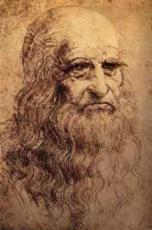Polymath
|
|
A polymath (also known as a polyhistor) is a person who excels in multiple fields, particularly in both arts and sciences. The most common other term for this phenomenon is Renaissance man, but also in use are Homo universalis and Uomo Universale, which in Latin and Italian, respectively, translate as "Universal Man". (NB In Latin homo may be male or female, the Latin word for a male human being vir.)
Many notable polymaths lived during the European Renaissance period, and a rounded approach to education was typical of the ideals of the humanists of the time. A gentleman or courtier of that era was expected to speak several languages, play a musical instrument, write poetry and so on, thus fulfilling the Renaissance ideal. During the Renaissance, Baldassare Castiglione, in his The Book of the Courtier, wrote a guide to being a polymath. On the other hand "polymath" may be applied more strictly, taking Leonardo da Vinci or Goethe as prime examples, and requiring a universality of approach. A polymath may not necessarily be classed as a genius, which is a more debatable classification; and certainly a genius may not display the breadth to qualify as a polymath. Albert Einstein is a prime example of a person generally regarded as a "genius" who was not a polymath.
See also: List of polymathsde:Polyhistor fr:Polymathe nl:Uomo universale

